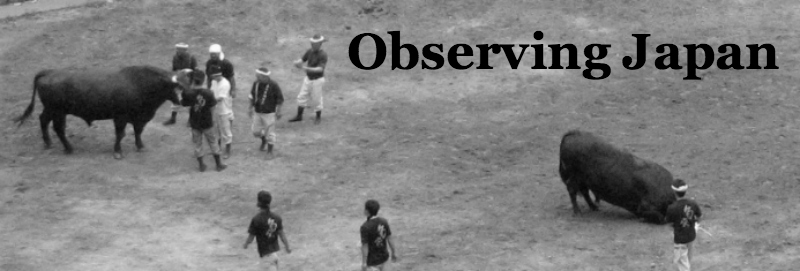Bogged down by an unfavorable political situation in Tokyo, the Kan government has few avenues for policy innovation. In recent weeks, however, it seems that the Kan government has decided to consider joining the Trans-Pacific Strategic Economic Partnership (TPP), a multilateral free trade agreement that currently includes only Chile, New Zealand, Singapore, and Brunei, but which the United States, Australia, Peru, Vietnam, and Malaysia are negotiating to enter.
The DPJ sent mixed signals on trade during the 2009 campaign: the initial draft of the party's manifesto stated that the party would "conclude" an FTA with the United States, but, criticized by farmers' groups, the party softened its proposal to "begin negotiations with the United States" and added a clause that it would only conclude an FTA with the US if domestic agricultural production could be safeguarded. Since the DPJ took power, trade has more or less vanished from the agenda — until now.
Following Kan's declaration in his policy speech that his government is considering TPP, Maehara Seiji, the foreign minister, has emerged as the government's leading advocate for greater trade openness, arguing in his speech earlier this month at the Foreign Correspondents' Club of Japan that since Japan's foreign policy is only as effective as its economic strength, diplomacy that enhances Japan's economy should be the government's top priority. (To make the point he pointed to South Korea's superior competitiveness as something that Japan should emulate.) To that end, he outlined a three-pillared approach that included (1) building a free trade system, (2) diversifying sources of food and natural resources as a hedge against risk, and (3) ensuring that Japan has the technology and infrastructure necessary to export.
When it came to concrete proposals to expand free trade, however, Maehara balked. He said that taking steps to join the TPP would be a test for Japan, but did not promise anything. He talked about trade negotiations with the US either bilaterally or within a multilateral framework, but offered little in the way of specifics. Given the thorny politics of free trade in Japan, Maehara's circumspection comes as little surprise, and the debate that has occurred within the government since his speech has been similarly tentative. To this point the government is still collecting opinions on the matter and has not decided whether it will pursue negotiations to join the TPP. Genba Koichiro, head of the national strategy office, said that the government will make its decision late next week. It has the support of Maehara and Kaieda Banri, the minister for economic and fiscal policy, as well as Sengoku Yoshito, the chief cabinet secretary, who said that TPP could be coupled with measures to support farmers harmed by imports (the logic behind Sengoku arch-rival Ozawa's income support plans). But these advocates are of course opposed by the ministry of agriculture, forestry, and fisheries — and by Nokyo, the peak association for agricultural cooperations, whose chairman has declared the TPP will mean the destruction of Japanese agriculture. The PNP, the DPJ's partner in government, and the Social Democrats, its erstwhile partner, have also come out against TPP, and Hata Yuichiro, chair of the DPJ's upper house parliamentary strategy committee, has said that he opposes joining the trade agreement "at this time."
Given the opposition arrayed against TPP, it is perhaps wise that the Kan government has not committed to the policy and is instead floating trial balloons. However, I wonder if there will ever be a good time for a Japanese prime minister to pursue an ambitious trade agenda. By proceeding cautiously now, did the government simply give its opponents time to mobilize and thus ensure that once again the issue will be postponed? It strikes me that if Japan is ever to participate in an ambitious free trade agreement like TPP (or the hypothetical US-Japan FTA), the only way it will ever get done is if the prime minister owns the issue, building a coalition in favor of free trade and selling the policy to the public in the same way that Koizumi sold postal reform. As the political economist Helen Milner once wrote (I'm paraphrasing), for economists, the puzzle is why states would ever done anything other than free trade — for political scientists the puzzle is why states would ever practice anything but protectionism.
If the government decides next week to make joining TPP a priority, it better be prepared for a three-pronged fight: among political parties in the Diet (remember that the government needs to cobble together upper-house majorities to pass legislation), among interest groups, and in the court of public opinion. The trade agreement will not sell itself. The government will have to commit to it fully. Anything less and the government is likely to suffer yet another defeat.
